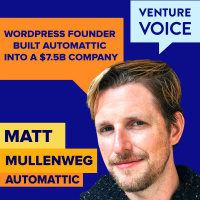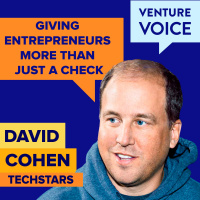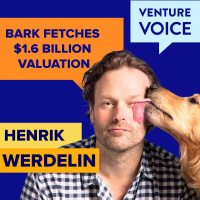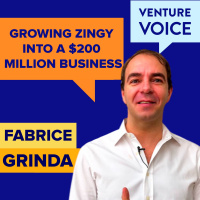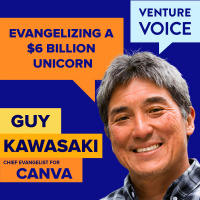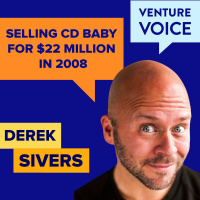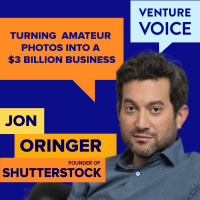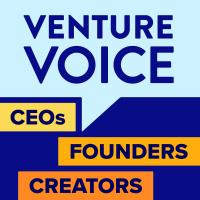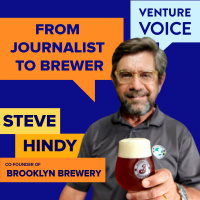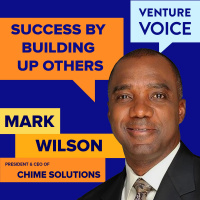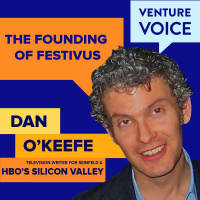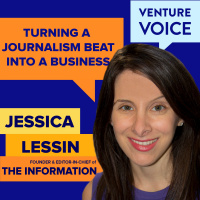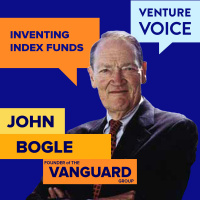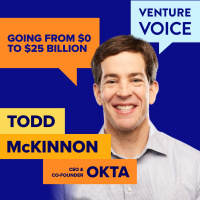Informações:
Sinopse
What does it take to start a successful business? Were working the phone to find the answers by calling entrepreneurs, venture capitalists and their friends and foes. This podcast features our conversations.
Episódios
-
Matt Mullenweg built Automattic into a $7.5B company
22/11/2021 Duração: 01h09minMatt Mullengweg was a high school student looking for a better way to customize his blog when he discovered the open source software community and created the WordPress platform. A few years later, after dropping out of the University of Houston for a brief stint at CNET Networks, he founded Automattic, which he describes as a holding company for products such as WordPress.com, Jetpack, WooCommerce, Simplenote, Longreads and The Atavist. And just like over 40% of the web today, they all run on WordPress. Unlike many of its contemporaries, Automattic, which became a unicorn in 2014, hasn’t gone the IPO route or been acquired. In February of 2021, the company closed a new primary funding round of $288M, and it continues to grow at a rapid pace. The company recently did a $250M share buyback, primarily targeted at current and former employees, at a $7.5B valuation. Matt continues to be energized by the open source community, which keeps him connected to users all over the globe. In fact, even before the pandem
-
David Cohen’s Techstars
19/07/2021 Duração: 45minAs Co-Founder and Chairman of Techstars, David Cohen has spent nearly his entire career focused on helping entrepreneurs succeed. Aspiring founders and early-stage entrepreneurs from around the world apply to Techstars’ startup accelerators to get three months of hands-on mentorship, access to a worldwide network and a check for $20,000 in exchange for 6% of the startup. When I spoke with David for this episode back in 2008, the program was just two years old, part of a trend of structured angel investing and mentoring that was started by Paul Graham’s Y Combinator. At that time, two companies founded at Techstars had been acquired: socialthing!, which was sold to AOL, and Intense Debate, which was sold to Automattic (the makers of WordPress). Fast forward more than a decade later, and David is a first-round investor in approximately 2,100 internet startups, including Uber, Twilio, SendGrid and Pillpack. Now running 40-55 accelerators during any given year, Techstars has funded over 2,600 companies that hav
-
Henrik Werdelin’s Bark fetches $1.6 billion valuation
05/07/2021 Duração: 01h08minOriginally from Denmark and now living in the US, Henrik Werdelin has been recognized as one of the “Top 100 Most Creative People In Business” by Fast Company and named to the “Silicon Alley 100” by Business Insider. His path to entrepreneurship took him through the BBC, MTV and Joost before he ended up creating Prehype, a “halfway house” for entrepreneurs like him, who didn’t know what to do next. Not only has Prehype incubated new ventures from scratch and in collaboration with Fortune 500 companies, it’s also where he hatched his own startup, Bark. With a mission to make dogs as happy as they make us, Bark quickly took off, expanding its BarkBox subscription service over the years to include toys, pet food, home and health product lines. In June of 2021, Bark went public via SPAC by merging with Northern Star Acquisition. The newly combined company is valued at approximately $1.6 billion, and Bark is expected to generate around $365 million in revenues and reach a gross profit of $221 million this year. B
-
Fabrice Grinda on growing Zingy into a $200 million business
22/06/2021 Duração: 01h03minFabrice Grinda is one of the world’s leading Internet entrepreneurs and investors, with over 150 exits on 500 angel investments. When I first interviewed him for this podcast, way back in 2005, the then-31-year-old French native was in the process of packing up his office at Zingy, the mobile media start-up he’d founded in 2000. After growing Zingy to $200 million in revenue, Fabrice had sold the company for $80 million in 2004. Eighteen months later, he was stepping down as CEO and looking ahead to his next adventure. At the time we spoke, Broadband, iTunes and podcasting were all new, and Fabrice saw it as “the beginning of a hundred year revolution.” He recognized that there were going to be huge opportunities ahead for the entrepreneurs who were willing to take the risks and go all in on a big idea. And as Fabrice’s story shows, you don’t have to be the one who comes up with the groundbreaking product to become a wildly successful entrepreneur. *** If you enjoy the podcast, would you please consider
-
Guy Kawasaki’s evangelizing Canva
07/06/2021 Duração: 44minGuy Kawasaki’s name has become almost synonymous with tech entrepreneurship and evangelism. Over the past 25 years, he’s had a hand in advising a generation of tech start-ups and innovators, either directly, through stints at Apple and Google, or through his writings, speaking engagements, podcast and numerous books. Guy has started up a few of his own companies as well, and the venture capital fund he launched, Garage Technology Ventures, has invested in a variety of early-stage technology companies. I first interviewed Guy for this podcast in 2006. Catching up with him nearly 15 years later was a real treat — although we were a little delayed getting started. As Guy explained, the waves were pretty good that day, so he had to get a little extra surfing in. When he’s not riding the waves, Guy is the Chief Evangelist for Canva, bringing the good news of the democratization of design to the world for this Australian startup, which is now valued at A$6 billion. In this episode, he shares what it means to be
-
How Derek Sivers decided to sell CD Baby
24/05/2021 Duração: 43minCD Baby founder Derek Sivers made two appearances on Venture Voice in the early days of this podcast. In our first conversation, he described the process of growing the company into one of the largest sellers and distributors of independent music online, with $25 million in revenue and 50 employees at the time. This week we’re revisiting our second conversation, which happened three years later. What a difference three years makes. In August 2008, Derek, who owned 100% of the equity, sold the company for $22 million. When we spoke in October of that year, Derek described what drove his decision to sell the company, how he sold it (including a Willy Wonka style plan that never came to fruition) and what he learned along the way. As you’ll hear, Derek wasn’t driven by the money. If anything, it was a deterrent to selling. So his lifestyle didn’t change when he sold CD Baby — and he made sure of that by putting all of the money into a charitable trust that will go toward music education when he dies. If you’ve
-
LivePerson’s Robert LoCascio got in mental shape to build a $3.5 billion business
10/05/2021 Duração: 01h05minBorn into a family of entrepreneurs, LivePerson founder and CEO Robert LoCascio always had the entrepreneurial spirit, going back to his teens when he and a friend started an auto detailing business. After graduating college, he had a brief stint in a “real” job, but that experience — he ended up getting fired via fax — convinced him that he never wanted to work for someone else again. Determined to control his own destiny, he took out $50,000 on credit cards to fund his first business, IKON. When a customer asked them to build a website, he made a bold decision to shift the business and, in the process, get himself in the mental shape necessary to be the entrepreneur he wanted to be. In this candid conversation, Robert reveals not just the business side but also the psychological and emotional journey involved with being an entrepreneur. His story is one of many ups and downs — from being hounded by credit card companies to taking his company public just before the dot com bubble burst to narrowly avoiding
-
How Tom Perkins pioneered venture capital in 1972
26/04/2021 Duração: 41minThis week we’re revisiting my 2007 interview with Tom Perkins, who was one of Silicon Valley’s most successful venture capitalists. The firm Tom co-founded, Kleiner Perkins, is responsible for funding some of the most well-known companies of the past four decades, including Google, AOL, Genentech, Sun Microsystems, Compaq and Tandem Computers. With that track record, Tom’s name is now almost synonymous with venture capital. But he actually cut his teeth as an entrepreneur. Educated at MIT and Harvard, Perkins first made his mark by managing the initial growth of Hewlett-Packard’s computer business while simultaneously inventing the first cheap and reliable laser. The company he built around the laser, University Laboratories, made him independently wealthy and allowed for the creation of Kleiner Perkins. But more than just the money, his time at HP gave him the opportunity to learn from a “giant” of business, Dave Packard. Packard, Tom told me, operated like a venture capitalist within HP and gave him a model
-
Shutterstock’s Jon Oringer Turned His Amateur Photos Into a $3 Billion Business
12/04/2021 Duração: 59minJon Oringer is not a professional photographer. But when he needed images to market his growing internet business, the traditional stock agencies were still stuck in the world of print, so he took the DIY approach. What started as a way to fill a need for his own company turned into a side business that quickly gained traction. So quickly, in fact, that he turned his attention to it full time. Jon built Shutterstock on a “two-sided marketplace” subscription model that has its roots in Pop-Up Eliminator, a tool he built while he was still in college. While that app was disrupted out of existence when Microsoft built pop-up blocking into Internet Explorer, he’d grown it to a million dollars in revenue by that time. In this episode, Jon shares how he started with a portfolio of app ideas that was eventually whittled down to Shutterstock. You’ll hear about the company’s rapid growth trajectory, Jon’s decision to take secondary funding in 2007 to accelerate the pace even more and what it was like to take the com
-
Curative founder Fred Turner’s fast pivot into COVID-19 testing
29/03/2021 Duração: 01h02minFred Turner was only 16 when he built his first PCR machine, a tool used to amplify small segments of DNA or RNA. He was interested in sequencing his own genome, but he soon discovered there were others who had a need for these kinds of cheaper, faster testing capabilities. When English pedigree farmers came calling, he pivoted his attention to agriculture, but soon found himself in need of funding to be able to scale to meet demand. That led him to the US, where he went through Y Combinator, which ultimately funded his first startup, Shield Diagnostics. Fred’s focus would return to human diagnostics, first with an STD testing business, where he learned, among other things, “The US healthcare system is just a bit of a mess.” What he couldn’t have predicted at age 16 when he first built that PCR machine is that less than a decade later, a global pandemic would bring the world to a halt, and PCR-based testing would play a critical role in getting people tested quickly and helping prevent the spread of COVID-1
-
How DRY Soda founder Sharelle Klaus pioneered the culinary soda category
15/03/2021 Duração: 48minHow do you start a whole new category of beverage — without any experience in the beverage industry? This week, we dip back into the archives for my 2005 interview with Sharelle Klaus, founder and CEO of DRY Soda. A former dot-com entrepreneur with a passion for food and wine, Sharelle was fed up with the lack of sophisticated beverage options available to her when she went out to eat while pregnant with each of her four children. She channeled that frustration into the launch of a startup focused on crafting culinary sodas, an entirely new category that would fill the gap for a huge untapped market. When we spoke in 2005, DRY Soda had only been in business about a year, but it had already taken the West Coast by storm and was in the process of expanding nationwide. Today, DRY Soda can be found in restaurants and stores across the U.S. as well as internationally and online. Building on the success of their “botanical bubbly” line of eight culinary sodas, Sharelle also recently released her mixology manual,
-
How Amanda Hesser cooked up success with Food52
01/03/2021 Duração: 55minIt was a real treat to interview Food52 CEO and co-founder Amanda Hesser, who’s an old friend going back to my early days in the New York startup community. Listening to her tell the story of her entrepreneurial journey, you get the sense that she’s lived many lives — from studying food history alongside classmates like Corby Kummer and Sheryl Julian to apprenticing in a bakery in Germany (where she was the only woman in the kitchen) to sharpening her cooking and writing skills at a Chateau in Burgundy and ultimately landing at The New York Times, where she served as food editor of The New York Times Magazine. One common theme that emerges from all of these experiences is Amanda’s all-in approach. She follows her gut, immerses herself in the adventure and soaks up everything she can from it. You can also see how all of those lives became part of the DNA of Food52. Although Amanda told me they’ve often felt out of sync with what’s popular or cool at the moment, the truth is, they’ve always been ahead of the
-
How Mike McDerment grew FreshBooks
15/02/2021 Duração: 01h10minSometimes, a big mistake can trigger a big idea. In 2003, Mike McDerment was running a small web design agency when he accidentally saved over an old invoice. Frustrated and looking for a better way to bill clients, he decided to build the better way himself. The solution he came up with would become the foundation for FreshBooks, a cloud-based accounting software for freelancers and service-business owners, which is now the #2 small business accounting software in America, with around 500 employees and customers in more than 100 countries. In true startup fashion, Mike ran FreshBooks out of his parents’ basement for the first 3 ½ years. His mother was even an early investor, securing a line of credit for the co-founders since they couldn’t get a loan themselves. In 2014, after a decade of incremental growth, FreshBooks raised $30 million in venture capital funding. A second round in 2017 raised another $43 million, fueling the company’s growth and dominance in the booming self-employed and small business ma
-
How journalist Steve Hindy started Brooklyn Brewery
01/02/2021 Duração: 45minWe’re heading back to the archives, this time revisiting my 2006 interview with Steve Hindy, co-founder of Brooklyn Brewery. Steve’s career journey, both as a foreign correspondent before he took the entrepreneurial leap, and as a brewery owner, is the stuff of blockbuster movie fare. After all, being robbed at gunpoint and being threatened by the mob are not problems the average entrepreneur encounters (thankfully!). Steve and his co-founder Tom Potter forged ahead through the ups and downs of the early years, even staring down bankruptcy at one point. But as Steve told me, building a business is like climbing a mountain. You put one foot in front of the other, you do the work everyday, and eventually you get there. In 2003, Steve and Tom sold their beer distributorship for $10 million to focus on the brewery. Since we spoke, Brooklyn Brewery has grown from $12 million to over $50 million in revenue, and it’s become a local institution, committed to investing in and giving back to the community. At the end
-
How Mark Wilson built his success by building up others’
18/01/2021 Duração: 55minLike most successful entrepreneurs, Mark Wilson, CEO of Chime Solutions, is an ambitious and savvy business person who’s driven by a strong work ethic and desire to make an impact. But when Mark founded his first company, Ryla, he was inspired by more than just the opportunity to build a business. Throughout his life, he had seen how talented people from minority communities often didn’t get the same chances as others who had more advantages. First with Ryla, which he ultimately sold for $80 million, and now with Chime Solutions, where he has a goal of creating 10,000 jobs around the U.S., Mark is aiming to level the playing field. In the process, he’s showing other CEOs that there’s a wealth of untapped talent out there, and that investing in people is good for business. Mark’s story is an inspiring reminder of what it means to be mission-driven and how much more powerful and fulfilling work is when you’re guided by meaning and purpose. *** If you enjoy the podcast, would you please consider leaving a
-
How Evan Williams turned side projects like Twitter into huge successes
04/01/2021 Duração: 39minToday, Evan Williams is most well-known for being the billionaire co-founder of Twitter, as well as Blogger and Medium. But back in 2005 when this episode was recorded, Twitter hadn’t even been conceived of yet. When we spoke, Ev had just raised about $2 million in venture capital money for a hot new podcasting company he was about to launch called Odeo. Spoiler alert: Odeo didn’t make it. But a little side project had promise, and about a year after this interview was conducted, he and his partners decided to shift their focus to it. That side project was Twitter. This episode takes us back to Ev’s mindset as he was gearing up for the launch of Odeo. It’s also a good reminder that failure is part of the entrepreneurial path. On a personal note, I have to say, this interview changed my life. Getting to know Ev and becoming one of the first users of Twitter ultimately gave me the idea for my first big success as an entrepreneur, The Shorty Awards. And that led me to start up my software company, Muck Rack. Y
-
Dan O’Keefe on the founding of Festivus and secrets of HBO’s Silicon Valley
21/12/2020 Duração: 49minIt’s a special holiday edition of Venture Voice, and the holiday we’re celebrating is Festivus. You may know it from the hit TV series Seinfeld, where the holiday “for the rest of us” is featured in the episode “The Strike” as an invention of George’s dad, Frank. Festivus was, in fact, invented by someone’s dad, but as you’ll hear in this episode, it wasn’t George Costanza’s; it was Seinfeld writer Dan O’Keefe’s. Dan shares how he reluctantly turned a family holiday memory he’d long tried to repress into one of Seinfeld’s most iconic episodes. At the time, he wasn’t convinced it would be well received. “It was embarrassing to me and seemed insane and not in a good, quirky TV way but in, like, a sad creepy dysfunctional way,” he shares. And yet, not only was that episode a hit with audiences, decades later, the holiday lives on. In preparing for the interview, I looked up media mentions for Festivus in our Muck Rack software and found over 3,000 articles have mentioned it in the past 12 months alone. Also in
-
Jessica Lessin of The Information turned her journalism beat into a business
07/12/2020 Duração: 52minJessica Lessin is founder, CEO, editor-in-chief and sole owner of The Information, the influential subscription-only tech publication that was launched on a simple idea: write deeply reported articles about the technology industry that people won't find elsewhere. As she shares in this episode, like many who work in the news business, she got the journalism bug early on, working on school papers and enjoying the permission it gives you to “be a little bit nosy.” While at Harvard, she covered the faculty beat for The Harvard Crimson, something she likens to covering Congress. Oh, and there was also “the other thing that was going on” — the launch of Facebook. Jessica went on to cover a new emerging tech beat for The Wall Street Journal, writing about startups and “what the kids were doing online.” But she had trouble convincing editors that companies like Facebook were worth writing about. She says they simply didn’t understand the business models that would ultimately propel these companies. Like many entre
-
How John Bogle started Vanguard Group and invented index funds
23/11/2020 Duração: 55minTo an entrepreneur, a corrupt industry with a lot of inefficiencies means one thing: There’s a huge opportunity to innovate. When he founded The Vanguard Group in 1975, John Clifton “Jack” Bogle created the first index mutual fund, an idea that was innovative in its simplicity. By keeping management costs low, he was able to pass the savings on to investors. It sounds like common sense, but it goes against the grain of how most mutual fund managers think and operate. In fact, at the time, his idea was ridiculed as “un-American” and “a sure path to mediocrity.” But Jack was undeterred. If anything, he was even more motivated by the naysayers.This interview was recorded in 2006 when Jack was 75, and what stands out is that his idealism and interest in “having the good fight” hadn’t wavered in the slightest. He’d just released his fifth book, “The Battle for the Soul of Capitalism,” and was still relentlessly focused on taking on corruption and abuse in the industry. He wasn’t in it for the fancy perks or the mo
-
Todd McKinnon's journey taking Okta from $0 to a $25+ billion public company
09/11/2020 Duração: 01h06minI can still remember logging in to PeopleSoft at my first job to see what deductions had come out of my paycheck. Now, all these years later, I’m interviewing the man who wrote that very code. Todd McKinnon, my guest on this episode of Venture Voice, began his career at PeopleSoft before moving on to Salesforce and ultimately founding Okta. Todd’s company is now worth over $25 billion. This episode takes you on Todd’s entrepreneurial journey, from the Powerpoint deck he presented to his wife (subtitle: “Why I’m not crazy” for quitting my job at Salesforce) to the initial product idea (with a name that sounded “like a French perfume”) to successfully completing an IPO. Listen now on Apple Podcasts. “You had to be able to have enough confidence that you’d be able to build this iconic tech company around this initial idea. A lot of initial ideas — people will pay for them but they don’t have that long-term staying power. They become a feature.”Todd McKinnon is the founder and CEO of Okta, a $25 billion publicly

